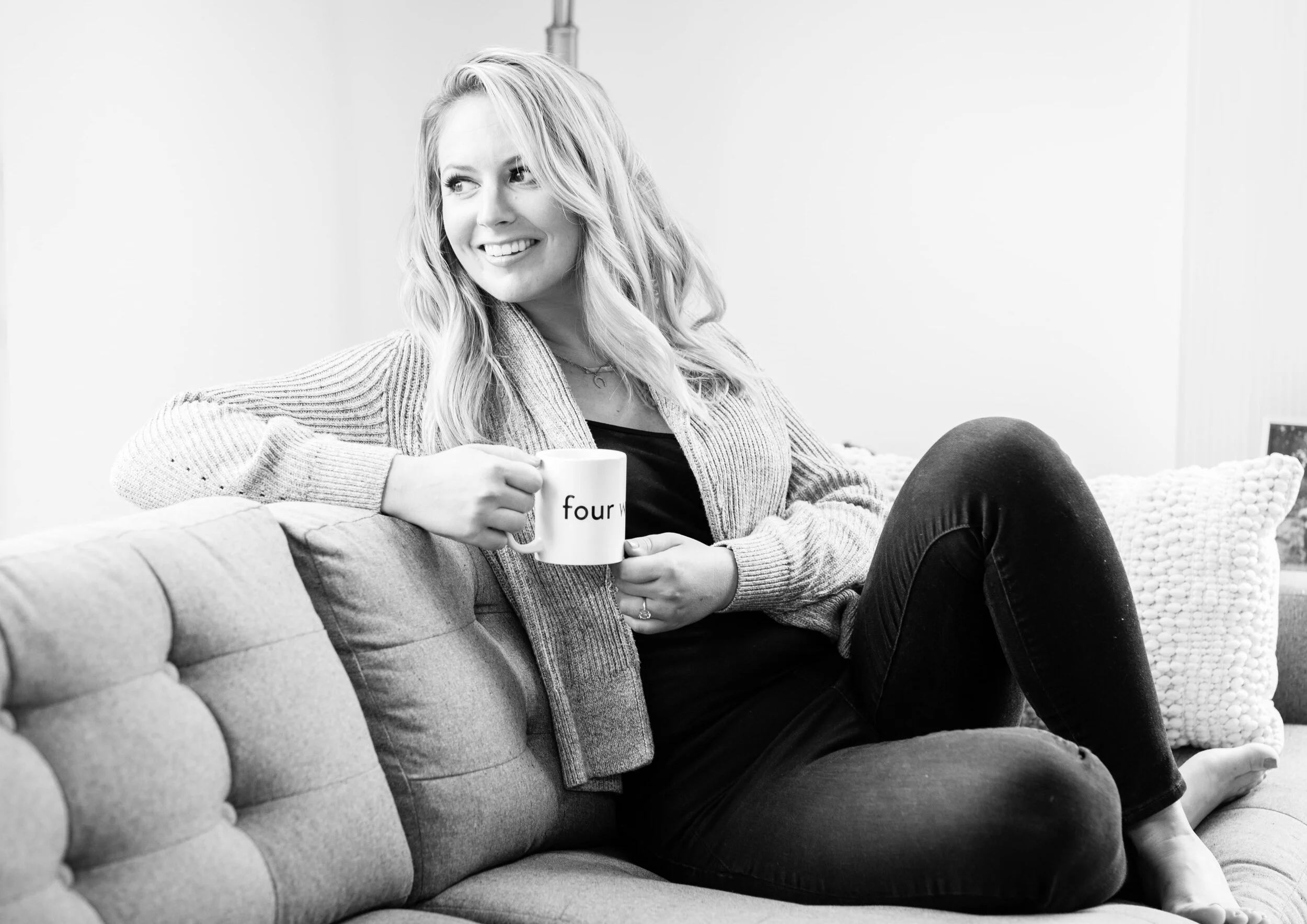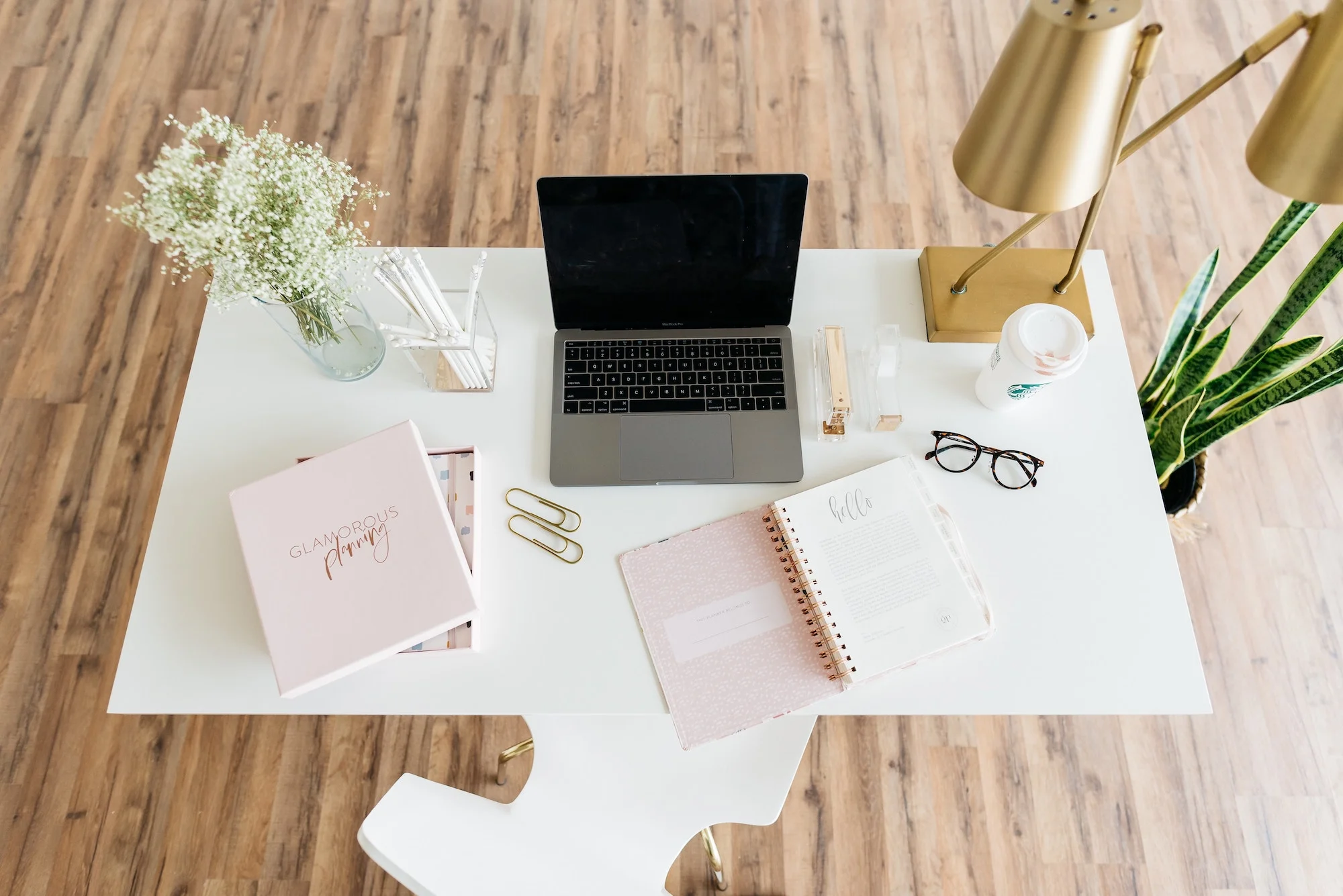How to Choose a Web Designer for Your Project
If you’ve ever built a website before (either DIY or working with a web designer), you know that it’s somewhat like birthing a baby. 😁
Not only is the process of design and “construction” time-consuming (and expensive, if you’re hiring someone), but the website itself has huge importance to the future of your business. It’s both a functional and symbolic creation. In many ways, it’s an extension of you and your business—it’s a summation of who you are, what you do, and how you do it.
It’s certainly a challenging process to design and build something that’s purpose is to fully and accurately represent you and your business—and all the aesthetic, functional and logistical needs that come with that.
So, choosing a web designer to work with during this process is an important choice, to say the least!
I’m super supportive of DIY websites too (that’s what most of my blog content here is about!), but if you’re on the fence about whether to get your website up and running yourself, or to hire a professional to help you, here’s another post with a few reasons why you might want (or need) to hire a professional web designer.
Tips for choosing a web designer
If you do choose to work with a professional, here’s what I (a web designer! 🙋♀️) recommend you consider in making your selection:
Portfolio
Past work is one of the best ways to visually understand the possibilities of the designer’s future work.
However, a caveat: As most portfolio pieces were developed for specific clients with specific project needs and goals, keep in mind that a designer’s portfolio is not necessarily indicative of their own personal style or preferences—often, designers are tasked with interpreting and bringing to life someone else’s style and branding.
If you see one overarching design theme in their portfolio, you can fairly safely assume that’s the designer’s primary aesthetic, and your site might be developed along those lines too. If you see a wide range of styles and aesthetics, it’s likely because the designer works with clients from a range of backgrounds.
When assessing a portfolio, also look beyond the design aesthetic and review the general professionalism of each site. Some things to consider:
Does the site flow well and “make sense” to the visitor?
Does it look great on both desktop and mobile?
Check out the footer: does the site have copyright information, a privacy policy, and other legal requirements?
Does the site have a branded favicon (the little icon in the browser tab)?
What types of additional functionality is incorporated? (email opt-ins, e-commerce, blogs, membership programs, etc.)
Some designers will only share screenshots of their prior work, while others will link to live sites. One important detail to note about live sites is that they’re often influenced by the site owners, who have taken over updating them, and in doing so may have made some changes to the designer’s original work.
Industry knowledge
Does the web designer have any other material you can review for a sense of their skillset or industry knowledge?
Do they write a blog, or have a YouTube channel that highlights their expertise? Have they been featured as a guest on a reputable podcast or published in a reputable publication?
In addition to design skills, it’s important to know that your designer is up-to-date on other aspects of web design—SEO best practices, email marketing integrations, etc.
Cost
Cost is definitely important to consider in web design, as it is in any type of purchase—as a business owner, you need to be aware of what’s in the budget for you, and what’s not.
That said, your website is arguably one of the most important pieces (if not the single most important piece) of your business—it’s your storefront, it’s where many potential customers or clients first find you, then learn more about you, then hopefully purchase from you—so it’s mega important to invest in a quality website that attracts your target audience, tells your brand story, and converts your visitors into paying clients.
It’s likely the investment you’ll make in your website will be one of the greatest returns in your business.
So, of course, ultimately keep in mind your personal and business finances (which are often combined for new business owners), but also be aware of the importance of quality web design and find a number that you’re comfortable working with to achieve the best site you can.
Sure, it’s possible to purchase a $500 brand-new website… but you’ll likely see a significant difference in the quality between that website and a $5,000 site.
And a side note: Even sites that look somewhat comparable at first glance can be significantly different in all the little back-end details that make a site more or less successful—SEO, favicon, mobile responsive design, page loading speed, etc.
Scope of work
In addition to considering the cost and quality of work, it’s important to look at the full scope of work included with different designers.
What does the designer include in their quoted fee?
Some designers include logo and favicon design in their projects, where others will require you to hire a graphic designer for that. Some designers will offer a customized cheat sheet or screen share tutorial to walk you through the back-end of your site and the updates you’ll need to make to it moving forward, while others simply pass over your finished website.
It’s also nice to know what additional skills a web designer could assist with, either in your initial design or down the road. Do they assist with email marketing set-up and template design? Do they have experience setting up e-commerce or online membership programs?
Factor all of these elements into the equation as you consider cost.
Credentials
Web design happens to be an industry in which you don’t really need to worry about formal credentials. While you wouldn’t dream of going to a doctor who didn’t have a medical degree and license, many quality web designers actually have no formal training in web design.
So, though you don’t have to inquire if a prospective designer has a Master’s in Computer Science, you can look for other credentials that acknowledge their experience and connection within the industry.
For Squarespace designers, you can look for the Squarespace Circle badge, which denotes someone is a member of Squarespace’s community of designers. (And this also means they can offer you 20% off your first year of Squarespace services!)
Timeline
Especially if your project has a specific launch date you need to meet, it’s important to know and consider a designer’s timeline—both for creating a draft and for any revisions.
Some web designers can turn around a project in just a couple weeks, while others will have longer turnaround times. Popular designers may even have waiting lists for new custom projects.
Though in the grand scheme of things, timeline is not as important as the other factors mentioned (you’re most likely better off waiting a couple weeks longer for a more quality website), this is just an item to note if you do have a specific hard deadline.
Personality
It’s a good idea to communicate with a potential web designer (either via phone or email) prior to hiring them to determine if your communication styles match. It’s essential for you to understand and feel comfortable with them and vice versa.
In addition to all the tangible factors to consider, there are also some intangibles we always recommend paying attention to: Do you like the person? Do they strike you as genuine, honest and dependable? Do you feel comfortable talking with them and sharing your ideas and concerns? Do they make you feel heard and understood (but not in a shmoozy way)?
These “soft skills” are also important details to note and consider as you choose someone to help you bring your website vision to life.
Testimonials
And, finally, there’s a lot of power in consumer reviews.
There’s not really a centralized review platform for web designers that includes all reviews, both good and bad (unless you’re using a freelancer platform like Upwork). So, just keep in mind that designers have the ability to select and feature only positive experiences in their testimonials.
However, it can still be helpful to see where positive experiences exist.
In order to get those testimonials, the clients had to be willing to share them, and the designer had to have a good enough relationship with them to ask. It’s also particularly helpful if the designer links to a client’s live website… that confirms that they’re a real person who had a real project with said designer. 👍
Now, where to find a web designer?
You can do a Google search for web designers who work on the specific website platform you’re planning to use (if you have a preference), and/or the specific industry you’re in (some web designers are industry-specific, which is great, as they get to know it even better!).
Another option is to connect with a freelancer on a platform like Upwork. You can search for freelancers, as well as list a project that available freelancers can apply to.
You could also research web designers in your specific location—but that’s only something we’d recommend if your website will be geography-specific (for example, if it’s a regional topic, or the website for a brick and mortar shop or restaurant). Web design is something that can be easily done remotely, so if you limit your search to local designers only, you may miss out on a great fit. However, there is certainly a benefit to using a local designer if there is specific local knowledge that should be applied to the design of your site.
It’s a good idea to reach out to, correspond with and even interview several designers in your search to get a sense of how they work, how they communicate, and any ideas or recommendations they have for your project.
However, note that most designers will not be able to provide you specific design ideas or mock-ups for your project before officially beginning work on the project together (as that’s asking them to do design work unpaid).
And, if it’s helpful, I’ve also compiled 10 questions you should ask before hiring a web designer.
Create a professional website to grow your business & brand
Get my free checklist for optimizing your Squarespace website:












